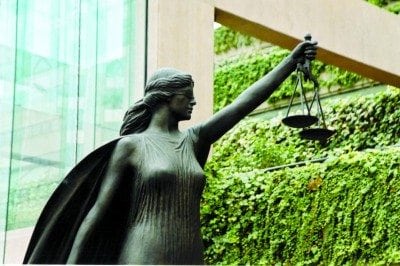Judge says previous owners Zora and Harminder Grewal “acted together, pursuant to a joint plan”
ZORA and Harminder Grewal, who owned a blueberry farm in Langley owed money to Farm Credit Canada which held a mortgage over the farm. According to a decision by B.C. Supreme Court Justice Geoffrey Gomery, in 2016, the mortgage was in default and the farm was under foreclosure. In late June of 2017, the FCC obtained an order authorizing a sale of the farm to the plaintiffs for $5.531 million. Following an unsuccessful appeal by the Grewals, Malkiat and Satwant Baring acquired the farm on July 17, 2017.
While all this was happening, the blueberry bushes were laden with ripening fruit that the plaintiffs planned to harvest and sell immediately. In 2017, it was well-established. Most of the blueberry bushes were mature and productive. The farm could be expected to generate net revenues from the sale of blueberries exceeding $200,000 per year, according to the court decision.
Shortly before the plaintiffs bought the farm, somebody sprayed herbicides over most of the fields. The blueberry bushes were ruined. The ripe blueberries were rendered unfit for human consumption. When the Barings arrived to take possession of the farm, the damage was immediately apparent. Leaves were yellowing and plants were dying.
The Barings maintained that the Grewals sprayed the herbicides. The Grewals denied that they did it and at the conclusion of the Barings’ case, they collectively elected not to call evidence and moved for judgment on the ground that the evidence is insufficient to make out the Grewals’ case, according to the court decision.
On July 11, 2017, the blueberry fields were inspected by outside experts to resolve a dispute as to whether the berries were so ripe as to require immediate harvesting. There was no sign of damage to the bushes at that time.
By July 17, 2017, damage to the blueberry bushes was widespread and readily apparent. The defendants admitted that the damage was done by the application of two herbicides, 2,4-D and glyphosate (commonly sold under the trade-name, “Roundup”).
The judge noted: “It is clear from the damage that the herbicides were applied directly to the plants throughout the fields. This is not a case of indirect windborne exposure to herbicides sprayed for some proper purpose. The spraying was wilful and malicious.”
“It required the culprits to mix herbicide concentrates with water. They had to spray about 15,000 litres of this mixture onto the plants from an air blast sprayer towed by a tractor driving up and down the rows of blueberry bushes. The farm is large enough that it commonly takes about ten hours to spray the fields. In this case, the spraying was erratic and the culprits may have done the job a little more quickly, but there is no question that hours of work, specialized knowledge, materials, and equipment were required,” the judge pointed out.
Ion his analysis, the judge said: “Who sprayed the herbicides on the blueberry fields? The timing and circumstances of the spraying point in the direction of Zora and Harminder Grewal. They had access to the tractor and sprayer used for the spraying that they admit they carried out on July 13, 2017. They were the only people who had assured access on the Farm to the large quantities of water required for extensive spraying.”
Regarding “motive,” the judge noted: “Harminder Grewal told Mrs. Baring about the dispute among the Grewal brothers. He told her that the Barings should not get involved in that dispute. He said that it is bad to get involved in somebody else’s dispute. He told them that rich people had looked at this property and shied away. He told them that they should do the same. If this was not a threat, it was at the least a warning. Harminder Grewal must have viewed it as a significant warning.”
He added: “While the Barings were not persuaded that they should walk away, the importance of the conversation lies in what it tells us about Harminder Grewal’s state of mind. He wanted to avoid losing the Farm. He was not confident in his legal position and was thinking outside the framework of legal remedies. He wanted to send a personal message. He wanted the Barings to know that, if they did not withdraw, they would be involved in a personal dispute among the Grewal brothers.
“It is plausible that, on July 13 and 14, 2017, Harminder Grewal wished to punish the Barings for their failure to take note of his message and withdraw from the purchase of the farm.”
The judge’s concluded: “I must decide, on a balance of probabilities, whether it was Harminder and Zora Grewal, or one of them, who sprayed herbicides on the farm. A balance of probabilities simply means that I must decide whether it is more likely than not that it was they who were the culprits.”
He said: “I find that Zora and Harminder Grewal acted together, pursuant to a joint plan.”
The judge said that the Barings were entitled to a price abatement of $2,796,400. The Barings were seeking an award of punitive damages of $1.12 million, but the judge said that in his judgment, “an award of $150,000 is sufficient to denounce the defendants’ misconduct and give them their just deserts.”
Full judgment:










